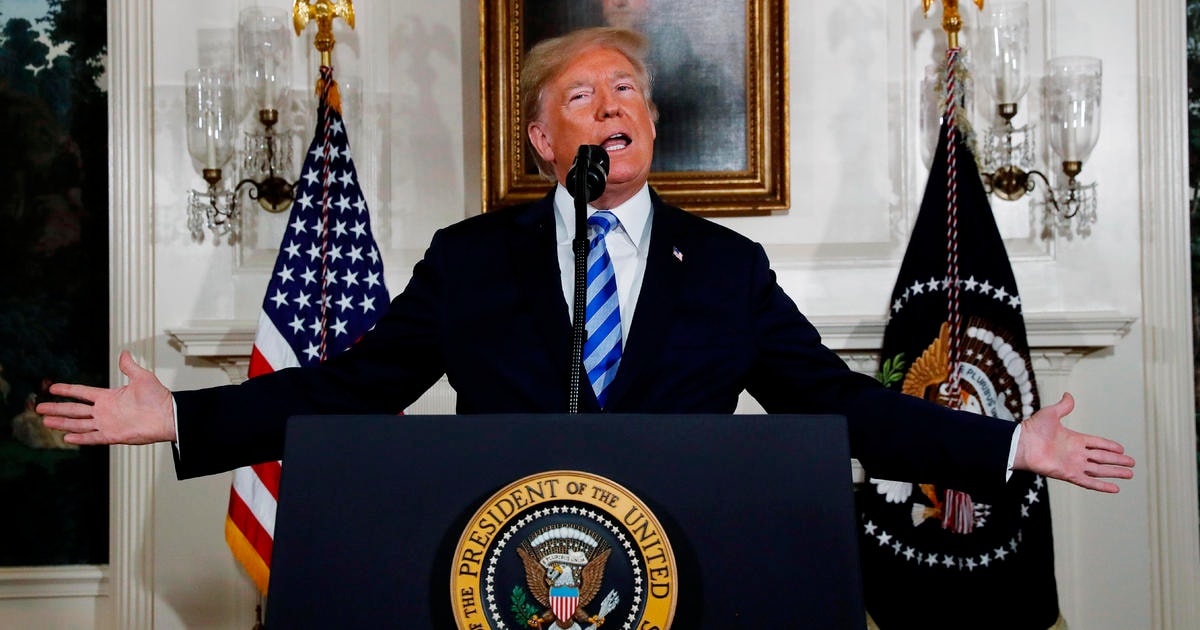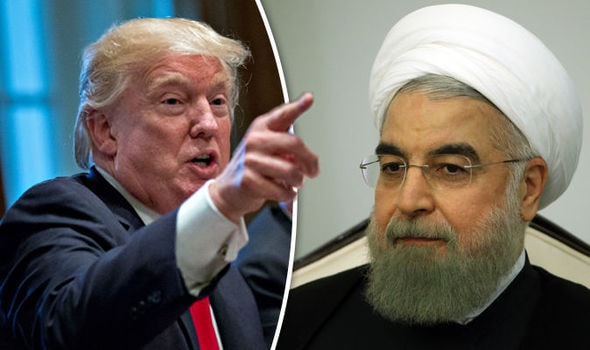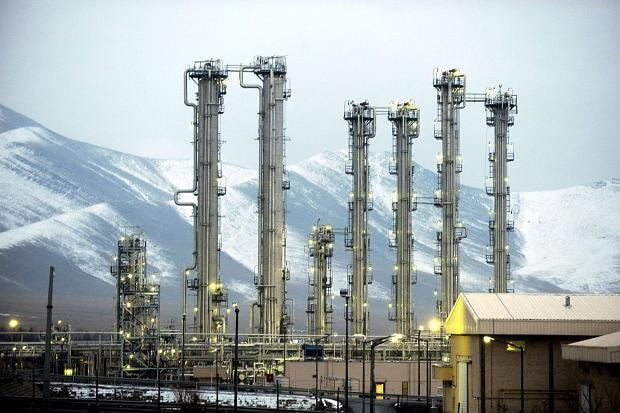Iran's nuclear dossier on the brink of the abyss?
(Baonghean) - As many opinions predicted, US President Donald Trump early on the morning of May 9 (Vietnam time) decided to withdraw the US from the historic Iran nuclear dossier.
The worst-case scenario that the public feared has come to pass. The US, despite the efforts of its allies, has decided to “turn its back” and re-impose sanctions on Iran. Is this the end of the efforts of all parties on the Iran nuclear issue?
 |
| US President Donald Trump announced the US withdrawal from the Iran nuclear deal. Photo: Reuters |
Mixed public opinion
In fact, the public was not too surprised by US President Donald Trump's decision to withdraw the US from the Iran nuclear deal. This was seen as a step to fulfill his commitment from the early days of his presidential campaign. Along with the announcement of withdrawing the US from the deal, Mr. Trump also immediately initiated the re-imposition of economic sanctions on Iran. Accordingly, foreign companies doing business with Iran will not be allowed to sign new contracts, and will reduce existing contracts in sanctioned sectors within 90 to 180 days. After this period, if companies continue to do business with Iran, they will face sanctions from the US.
It is not difficult to understand the strong criticism from the public and other countries after President Trump's announcement. Former US President Barack Obama and Mr. Joe Biden, who participated in the signing of the nuclear agreement with Iran, immediately called this action a "serious mistake" and at the same time damaged the prestige of the US in the international arena. Many US Democratic Party congressmen also expressed "disappointment" about the decision of the head of the country. This was completely predictable because up to now, within the US itself, there have always been conflicting views on the Iran nuclear dossier.
These contradictions also exist among the US's allies. It is worth mentioning that the UK, France and Germany have all expressed their disagreement and pledged to continue implementing the nuclear deal with Iran. On Twitter, French President Emmanuel Macron wrote: "European countries will cooperate collectively in a broader framework to control Iran's nuclear activities, the period after 2025, Iran's ballistic missile program and stability in the Middle East, especially in Syria and Yemen." The European Union (EU) also expressed "disappointment" with the US's unilateral policy, and affirmed that as long as Iran complies with the agreement, the European Union will remain involved in this agreement.
On the contrary, US allies in the Middle East such as Saudi Arabia and Israel are the countries that are most happy with the decision to withdraw the US from the Iran nuclear dossier. It is understandable, because these are two countries that have always been "rivals" and competed for the leading position in the region with Iran. Previously, when the Obama administration signed the historic nuclear agreement, these countries at times "believed" that the US had "turned its back" on its regional allies. Therefore, with the latest statement of President Trump, the US-Israel or US-Saudi Arabia alliance relationship can be said to have truly returned to its old orbit.
 |
| Iran's nuclear dossier remains a source of US-Iran tension. Photo: Getty |
America wins or loses
Some say that perhaps the withdrawal of the US from the Iran nuclear deal is simply a move by Mr. Trump to reassure regional allies. But in reality, with this decision, the US has gained much more than that! While fulfilling his campaign pledge, Mr. Trump is also gradually implementing his “Middle East plan”. That is a series of actions: declaring Jerusalem as the capital of Israel, establishing an anti-terrorist alliance that is actually against Iran, or proposing a deal of the century to resolve the Israeli-Palestinian conflict… And now, attracting attention by withdrawing the US from the Iran dossier.
Not only that, the US is clearly trying to win over the rich countries in the Gulf, especially Saudi Arabia and the United Arab Emirates (UAE). In fact, these are allies that have huge contracts to buy weapons from the US; while the US's leading oil companies are also operating in these countries. These rich Arab countries are also fertile markets for US technology goods, or in the fields of finance and banking.
Perhaps, this is the very realistic thinking of a billionaire President like Mr. Donald Trump. Of course, on the contrary, along with the "benefits" that the US receives, Washington will probably also have to "pay a high price". As many countries have warned, the US will only be further isolated with this decision, when a series of allies have expressed their opposition. Next, people will also not be able to predict how Iran will react. Because President Hassan Rouhani, although declaring that the country can continue to pursue the nuclear deal without the presence of the US, immediately ordered the Atomic Energy Organization of Iran (AEOI) to be ready to continue nuclear enrichment at the industrial level without any limits.
 |
| Arak heavy water nuclear reactor in Arak city, central Iran. Photo: Missing Peace |
Will it all go down the drain?
Analysts are concerned that Iran will most likely return to enriching uranium and developing nuclear weapons. If this scenario occurs, it will be a fire in the Middle East, triggering a dangerous nuclear arms race. Tensions between Iran and Saudi Arabia, the UAE, and Bahrain will certainly become increasingly heated. Meanwhile, Iran's internal affairs will also become complicated with the hardline attitude of Iran's Islamic conservatives. This will be a stepping stone for the hardline faction's opposition to President Hassan Rouhani's moderate policies.
Not only that, perhaps President Trump must also have anticipated once again inadvertently giving Russia an advantage in the Middle East geostrategic battlefield. In recent times, Russia's position and role have been increasingly consolidated on all fronts, from the Syrian battlefield, Israel-Palestine relations to the war on terrorism. Because the world observers believe that the US is also turning the Russia-Iran-Syria relationship, which was only an ally of interests, into a strategic alliance in the Middle East. At that time, the Russia-Iran-Syria trio will surprise the public. That's why in the latest development, right after President Trump's announcement, Israeli Prime Minister Netanyahu went to Russia to seek talks with President Putin.
Up to this point, it is unknown what moves the parties are continuing to calculate on the upcoming Iranian chessboard. However, according to optimistic viewpoints, perhaps, not only the international community but also the US and Iran do not want military moves to happen. Therefore, people see in their statements, US allies such as the UK, Germany, France, Russia or even the US President still leave open the possibility of dialogue.
Meanwhile, Iran’s response up to now is still considered quite moderate. Therefore, public opinion expects that President Trump’s announcement of withdrawing the US from the Iran nuclear deal is just to increase the conditions for the upcoming negotiations. And that the historic Iran nuclear deal, which the international community has spent so much time to achieve, will not be easily “down the drain”.
